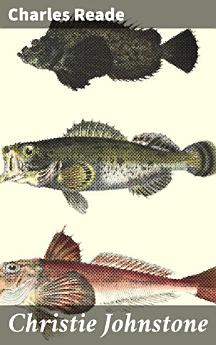Christie Johnstone: A Novel
Charles Reade
Apr 2021 · Good Press
Ebook
207
Pages
family_home
Eligible
info
reportRatings and reviews aren’t verified Learn More
About this ebook
In 'Christie Johnstone,' Charles Reade crafts a poignant narrative that intertwines love, ambition, and the harsh realities of life in 19th-century England. The novel follows the life of a young woman, Christie, who endeavors to escape her humble origins in the fishing community of St. Ives. Reade'Äôs evocative prose, characterized by vivid imagery and emotional depth, reflects his mastery of the realist style prominent in Victorian literature. Set against the turbulent backdrop of societal change, the book explores themes of social class, personal sacrifice, and the pursuit of happiness amidst adversity. Charles Reade (1814-1884) was influenced by his background in law and literature, as well as his experiences in the theatre. His keen understanding of human nature and social injustice is evident in 'Christie Johnstone,' which showcases his desire to illuminate the struggles of the working class. Reade was deeply concerned with social issues, often advocating for reforms, and this passion translated into his narrative, enriching the authenticity of his characters and their experiences. 'Christie Johnstone' is highly recommended for readers interested in rich character studies and historical social commentary. Reade'Äôs ability to create emotionally resonant relationships within a well-researched historical context offers a compelling exploration of the human condition, making it an essential read for those aiming to grasp the complexities of Victorian life.
About the author
Charles Reade, 1814 - 1884 Charles Reade was born at Ipsden, Oxfordshire, on June 8, 1814. He entered Magdalen College, at Oxford, earning his B.A. in 1835, and became a fellow of the college. He was subsequently dean of arts, and vice-president of Magdalen College, earning his degree of D.C.L. in 1847. His name was entered at Lincoln's Inn in 1836; he was elected Vinerian Fellow in 1842, and was called to the bar in 1843. He kept his fellowship at Magdalen all his life, but after earning his degree, he spent the greater part of his time in London. His first comedy, The Ladies' Battle, appeared at the Olympic Theatre in May 1851. It was followed by Angela (1851), A Village Tale (1852), The Lost Husband (1852), and Gold (1853). But Reade's reputation was made by the two-act comedy, Masks and Faces, in which he collaborated with Tom Taylor. It was produced in November 1852. He made his name as a novelist in 1856, when he produced It's Never Too Late to Mend, a novel written with the purpose of reforming abuses in prison discipline and the treatment of criminals. Five minor novels followed in quick succession, The Course of True Love never did run Smooth in 1857, Jack of all Trades in 1858, The Autobiography of a Thief in 1858, Love Me Little, Love Me Long in 1859, and White Lies in1860, dramatized as The Double Marriage. In 1861, his masterpiece, The Cloister and the Hearth, was published, relating the adventures of the father of Erasmus. At intervals throughout his literary career he sought to gratify his dramatic ambition, hiring a theatre and engaging a company for the representation of his own plays. His greatest success as a dramatist was his last attempt, Drink, an adaptation of Zola's L'Assommoir, produced in 1879. Reade's health began to fail not long after, and he died in April of 1884, leaving behind him a completed novel, A Perilous Secret.
Rate this ebook
Tell us what you think.
Reading information
Smartphones and tablets
Install the Google Play Books app for Android and iPad/iPhone. It syncs automatically with your account and allows you to read online or offline wherever you are.
Laptops and computers
You can listen to audiobooks purchased on Google Play using your computer's web browser.
eReaders and other devices
To read on e-ink devices like Kobo eReaders, you'll need to download a file and transfer it to your device. Follow the detailed Help Center instructions to transfer the files to supported eReaders.








